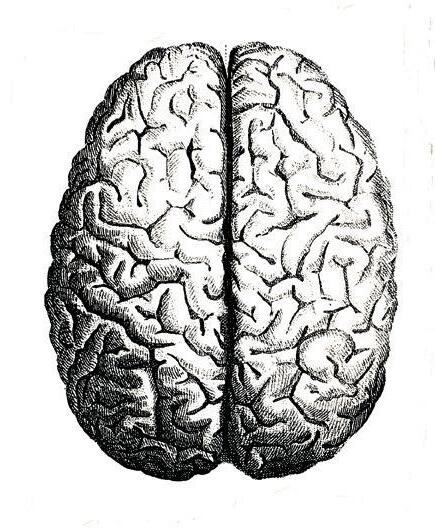
4 minute read
Alzheimer’s Update
from Newsletter Q2 2015
by BrainHealth
In a study published in the latest edition of the Journal of Alzheimer’s Disease researchers identify a specific variation in brain waves of individuals with amnestic mild cognitive impairment (aMCI), those at twice the risk of others in their age group of progressing to Alzheimer’s disease. The findings depict a pattern of delayed neural activity that is directly related to the severity of impairment in cognitive performance on a word finding task and may indicate an early dysfunction of progression to Alzheimer’s.
The potential diagnostic approach utilizes electroencephalogram (EEG) technology, a more affordable and non-invasive alternative to other available methods such as MRI or a spinal tap, to measure neural responses while participants access general knowledge and concepts.
Advertisement
“This is a promising start at looking at a group of MCI patients. The long-term goal is whether this can be applied to individual patients one day,” says study principal investigator John Hart, Jr., M.D., medical science director at the Center for BrainHealth.
“The majority of EEG research in aMCI has focused on looking at the mind ‘at rest’, but we are looking at the brain while it is engaged in the object memory retrieval process. We think this might be more sensitive and more specific in pointing out certain cognitive deficits, in this case semantic memory, than other non-EEG methods available, because EEG reflects direct neural activity,” explained study lead author Hsueh-Sheng Chiang, M.D., Ph.D., a research doctoral student at the Center for BrainHealth at the time of the study. “This protocol could potentially provide complementary information for diagnosis of pre-dementia stages including MCI and identify neural changes that can occur in cases of Alzheimer’s disease.”
This work is in collaboration with Raksha Anand Mudar, Ph.D., from the University of Illinois at Urbana-Champaign, and researchers from UT Southwestern Medical Center and John Hopkins University School of Medicine.
Study funding was made possible by grants from the National Institutes of Health (RCI-AG035954, P30AG12300), RGK Foundation, Alzheimer’s Association New Investigator Grant (NIRG-11-173815), Berman Research Initiative at the Center for BrainHealth, and the Linda and Joel Robuck Friends of BrainHealth New Scientist Award.

CENTER GOINGS-ON
AWARE AND SAMMONS CORPORATION HELP ADVANCE ALZHEIMER’S RESEARCH
The Alzheimer’s Association’s newly-released report was a call to action for Americans to redouble efforts to prevent and fight this progressive, and ultimately fatal, brain disease. With the number of people age 65 and older with Alzheimer’s expected to grow from 5.1 million to 7.1 million in the next ten years, two Dallas-based organizations are taking charge to further the Center for BrainHealth’s leading-edge research to change the trajectory of this devastating disease. The AWARE Fund of The Dallas Foundation and Sammons Corporation provided funding to advance Alzheimer’s-related research aimed at finding treatments that could potentially stave off Alzheimer’s disease in individuals at risk for dementia.
“As a company, we have seen firsthand the effects of Alzheimer’s disease on our parents and grandparents,” said Christine Anderson, director of corporate communications for Sammons Corporation. “By partnering with Center for BrainHealth, we are supporting advancements that will slow the progression of the disease so that future generations may live longer, healthier and happier lives.”
“Our grant review committee was very impressed with the Center for BrainHealth’s research in the area of slowing the progression of Alzheimer’s disease,” said Janet Broyles, president of AWARE. “It is important to us that we keep our grant dollars in the Dallas and North Texas communities, and that we support such fine non-profit organizations as Center for BrainHealth, who are actively making a difference in the fight against Alzheimer’s disease.” The Center’s research focus lies with those faced with mild cognitive impairment (MCI), a state in between normal aging and Alzheimer’s disease; a previous randomized clinical trial was aimed at determining whether strategy based cognitive training could significantly slow disease progression.
Preliminary findings suggest that eight hours of strategy-based cognitive training improves brain function, including strategic attention and abstraction in individuals with MCI. With support from AWARE and Sammons Corporation, BrainHealth researchers will now add a session of brain stimulation, a small electrical charge delivered to specific brain areas, before each training session. Additionally, the project will use imaging technology to measure change in brain energy metabolism and to measure global brain blood flow and connectivity.
“By combining this targeted neurostimulation device with our proven high performance brain training, we hope to prime the brain and enhance plasticity to incrementally increase brain health and performance,” said Sandi Chapman, Ph.D., founder and chief director of the Center for BrainHealth. “We are grateful to Sammons Corporation and AWARE for their commitment to improving the brain’s resilience and better understanding markers of brain health and decline.”
Daily
With Dr. Xiaosi Gu’s groundbreaking approach to understanding the complexity of the brain, BrainHealth will be home to one of only four computational psychiatry laboratories in the world and will pioneer research breakthroughs by bringing together experts in neuroscience, psychiatry, decision sciences and computational modeling to quantitatively define problems in psychiatric disorders. Doing so will help to inform objective psychiatric assessments and treatment plans based on an individual’s biology.
Dr. Gu’s recent work, published in the Proceedings of the National Academy of Sciences ( PNAS ), suggests that belief is as important as biochemistry in addiction, implying that what an individual thinks about the act of engaging with a drug and its subsequent effect on the brain and body has major implications in how the brain responds to the drug.
2016 Lecture Series
The Brain: An Owner’s Guide |
February 2 | David Gelles, Mindful Work: How Meditation Can Transform Business
February 9 | Miguel Nicolelis, M.D., Ph.D., Brain-Machine Interfaces: From Basic Science to Neurological Rehabilitation
February 16 | Adam Gazzaley, M.D., Ph.D., Video Games: Innovative
Approaches to Enhance Brain Health at Any Age
February 23 | John Cryan, Ph.D., Food for Thought: How Your Gut Changes Your Mind will once again deliver up-to-the-minute brain health research straight from renowned leaders in the field every Tuesday night in February.
CENTER FOR BRAINHEALTH’S BRAIN PERFORMANCE INSTITUTE






